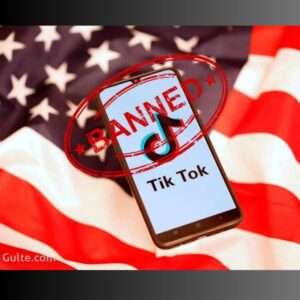In a major move, the United States has announced a TikTok ban effective from today. This decision has sparked debates over privacy, data security, and the role of social media in global politics. For millions of American users, this ban raises questions about how it will affect their social media experience. In this article, we’ll break down why TikTok was banned, what it means for users, and how this could impact the future of social media in the US.
Understanding the TikTok Ban
Why Was TikTok Banned in the US?
The TikTok ban in the US has been discussed for months. The app, owned by the Chinese tech company ByteDance, has become extremely popular, especially among younger users. However, concerns about privacy and national security have led to the ban. Critics worry that the Chinese government could access user data, posing a potential security risk. Despite TikTok’s assurances that it stores data in the US, lawmakers remain skeptical.
Additionally, TikTok has faced accusations of censorship and spreading misinformation. These concerns have intensified calls for a ban, as lawmakers fear the app could be used for political manipulation.
Legal and Political Implications
The ban isn’t just about technology. It also highlights geopolitical tensions between the US and China. This move is part of a broader strategy to limit China’s influence in the global tech market. The ban also raises important questions about government control over digital platforms. Some critics argue that it infringes on free speech and could set a dangerous precedent for digital censorship.
What Happens Now?
Impact on Users
For US TikTok users, the ban means the app will no longer be available for download. Those who have the app may face restrictions on its use. The ban could stop users from accessing content or uploading videos. If you’re currently using TikTok, you may receive a notification saying the app is no longer available.
Users may try to bypass the ban using VPNs, but enforcement of the ban could make this difficult. The full impact on users remains to be seen, but it’s clear the ban will disrupt many people’s social media habits.
Impact on Content Creators
TikTok has become a platform for many content creators to grow their audience and earn money. Influencers on TikTok will face significant challenges, as they may lose their main platform. Some are already moving to other platforms like Instagram Reels, YouTube Shorts, and Snapchat Spotlight. However, transitioning to another platform won’t be easy. TikTok’s algorithm helped creators grow by promoting their content based on engagement rather than follower count.
Creators will need to adapt quickly. But, the TikTok ban could make it harder for some to maintain their reach and income.
What Happens to TikTok’s US Workforce?
TikTok’s US operations employ thousands of people, including engineers and marketing staff. The ban could lead to layoffs and changes in how the company operates in the country. ByteDance may try to restructure or sell TikTok’s US operations, but that might not be enough to address security concerns.
Even if TikTok tries to comply with US regulations, questions about its ties to China will remain. The future of TikTok’s US workforce looks uncertain.
Also Read: Apple Card
The Future of Social Media in the US
Emergence of Alternatives
With TikTok banned, many US users and creators will turn to other platforms. Instagram’s Reels, YouTube Shorts, and Snapchat are the main alternatives. These platforms offer similar features, like video editing and music integration. However, none have reached TikTok’s level of success. TikTok’s unique algorithm made it easier for new creators to go viral. It’s unclear whether other platforms can replicate that experience.
The Impact on Privacy and Data Security
The TikTok ban is part of a larger trend of countries increasing control over tech companies. Data privacy has become a key issue as users demand more transparency about how their data is used. In the US, lawmakers may push for stricter regulations on tech companies and their data practices. This could lead to new laws that hold companies accountable for how they handle user information.

Geopolitical Tensions and Technology
The TikTok ban also highlights the role of technology in geopolitics. As the US and China compete for global tech dominance, platforms like TikTok become pawns in this struggle. The outcome of this battle will shape the future of global tech and international relations.
Conclusion
The TikTok ban in the US, effective today, is a significant development in the ongoing debate over digital privacy, national security, and free speech. For now, US users will need to explore alternative platforms. Content creators will also need to adjust to maintain their audience. The long-term impact of the ban remains uncertain, but it’s clear that social media in the US will undergo significant changes.
This ban is just one chapter in a larger story about the future of technology and privacy. It also signals the growing influence of governments in regulating digital platforms. As the global tech landscape continues to evolve, the TikTok ban will likely be remembered as a key moment in the intersection of technology and geopolitics.